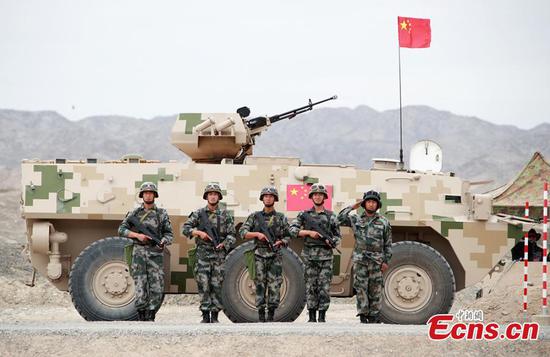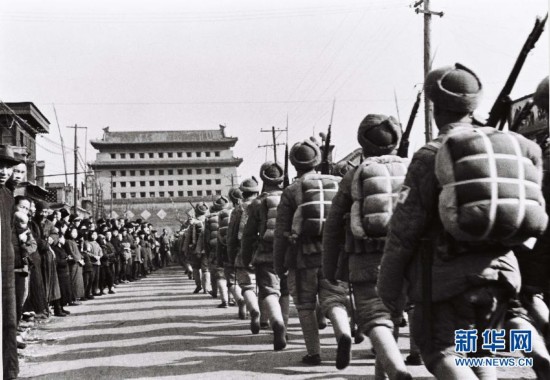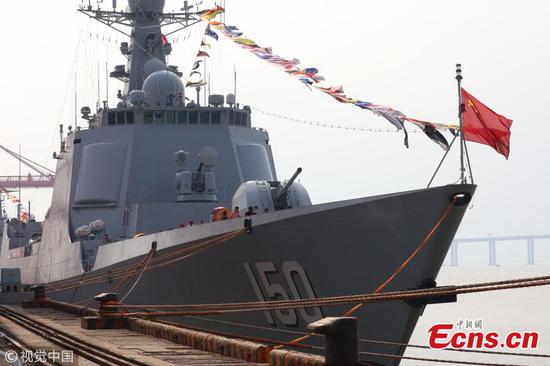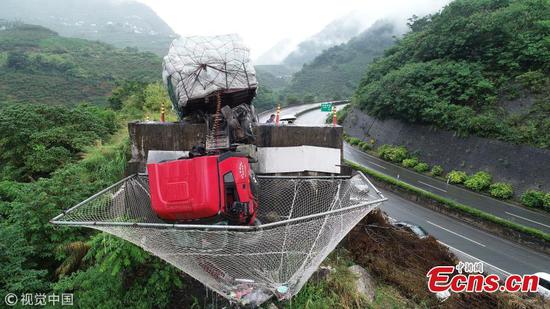The U.S. proposal for the Indo-Pacific economic strategy may not be conducive to the development of the region nor in line with the so-called principle of "free" and "open", if Washington still adheres to a Cold War mentality and zero-sum mindset, Chinese experts said.
In a speech before the U.S.-India Business Council of the U.S. Chamber of Commerce on Monday, U.S. Secretary of State Mike Pompeo outlined U.S. President Donald Trump's Indo-Pacific economic strategy, announcing $113 million in investments focused on technology, energy and infrastructure in the region.
Among the new moves outlined by Pompeo, Washington will invest $25 million to expand U.S. technology exports to the region, add nearly $50 million this year to help countries produce and store their energy resources, and create a new assistance network to boost infrastructure development, Reuters reported.
"These funds represent just a down payment on a new era in U.S. economic commitment to peace and prosperity in the Indo-Pacific region," Pompeo said, adding that Washington wants a "free and open" Asia not dominated by any one country, a comment Reuters reported as an apparent reference to China.
Brian Hook, a senior adviser to Pompeo, said before the speech that the U.S. was not aiming to counter China. However, while he praised that U.S. model of economic engagement as the healthiest for the region, he also claimed that China's Belt and Road Initiative is a "made-in-China, made-for-China" proposal.
But Li Haidong, a researcher of U.S. studies at China Foreign Affairs University, said the U.S. plan is a reflection of its own geopolitical thinking of China, and is treating China as an enemy.
Li said the Indo-Pacific strategy will not bring common prosperity and reconciliation to the region if the U.S. continues to maintain the thinking that economic cooperation is an area of geopolitical competition.
He said China has always stressed that its Belt and Road Initiative is open, inclusive and transparent, adding that Beijing would welcome the U.S. plan if it was only aimed at promoting economic cooperation.
"If the U.S. still holds a Cold War mentality and zero-sum mindset to consider China as a competitor in the region, the purpose and effect of this plan deserve to be suspected," Li said.
Washington's reliability as an economic partner in the region was cast into doubt by Trump's surprise withdrawal from the Trans-Pacific Partnership and the recent trade frictions with China and other Asian trade partners.
Pompeo sought to allay concerns that the U.S. had forgotten about its regional allies as he made broad claims that U.S. efforts in the Indo-Pacific are heralding "a new era in U.S. economic commitment to peace and prosperity".
"I know some are wondering about the U.S. role in the region in light of President Trump's decision to pull out of the Trans-Pacific Partnership," he said. "While we work with our partners to craft better and higher-standard bilateral trade agreements, our companies are continuing to advance U.S. economic interests by growing our presence in the region."
Qian Feng, who is a senior research fellow at the National Strategy Institute of Tsinghua University, said the U.S. has demonstrated that its policy is always unilaterally "U.S. benefit-oriented", which has greatly reduced the U.S. credit.
Qian said what the region needs is a far more constructive approach in fostering its economy, rather than a coalition plan that risks creating a pointless Cold War sugarcoated by economic assistance.
Pompeo will visit Malaysia, Singapore and Indonesia this week, where he planned to announce new security assistance to the region.


















































